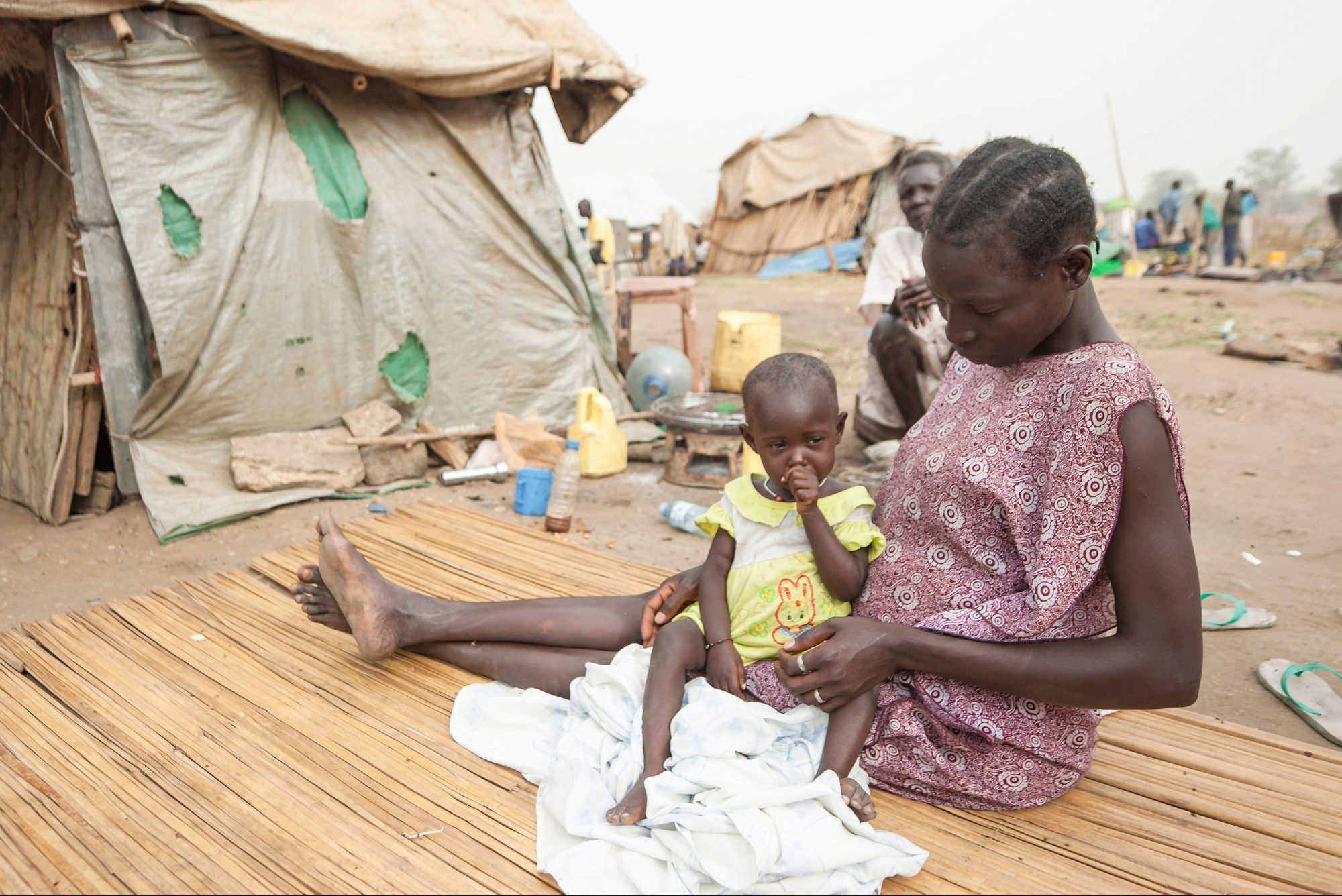The below essay by Alex de Waal was published in the World Peace Foundation Annual Report (2018 – 2019) .
Mass starvation is rare, but terrible. How, where and why it occurs also tells us about the bigger political and economic trajectories of our time. Famines arise from political and moral choices: the powerful decide whom should be allowed—or forced—to die and why. The reasons for those choices are usually disguised, hidden or left unspoken, which makes the power politics all the more telling.
Starvation, in its everyday usage, means deprivation of food. In international law—notably, Article 8(2)(b)(xxv) of the Rome Statute of the International Criminal Court which lists war crimes—it means depriving people of objects indispensable to their survival, which can include medicine, clean water, shelter, sanitation or maternal care. This definition is closer to the empirics of famine.
At the end of the 19th century, at the zenith of European imperialism, ‘Late Victorian Holocausts’ devastated East and South Asia, as well as parts of Africa and Latin America, and starkly showed the inhuman calculus of imperial conquest and expropriation of wealth. The ‘short 20th century’ from 1914-89 was an age of hunger as much as one of state violence. Mass starvation was a favored method in total wars; and a tool of genocide and titanic social transformation in totalitarian systems. Hitler’s ideology of racial hierarchy, with ‘useless eaters’ at the bottom, was a program of starvation. Stalin, Mao and Pol Pot saw human beings as the raw material for utopian societal transformation, and regarded famine as a price worth paying, or even a helpful tool of control. Since the end of the Cold War, the ‘complex humanitarian emergencies’ of sub-Saharan Africa and the Balkans dramatically revealed the human deprivation that follows in the wake of failing states—and also the humanitarian impulses, albeit sometimes contradictory and confused, of the international community. Over the last generation, as the death toll of these crises diminished, there was at last a genuine prospect of eliminating famine for good.
Today, a new round of crises of mass starvation show a different pattern. Without question they demand humanitarian relief and condemnation of those responsible. But what do they tell us about our global political system and our values?
Climate Crisis
Will global warming bring new famines? We haven’t yet seen a climate crisis famine, and when it comes it’s not likely to resemble the food crisis apocalypse of popular imagination. The problem is more insidious than that.
Let’s begin with the imagined famine calamity that has haunted the western world since Thomas Malthus published his Essay on Population in 1798, as adapted by more recent prophets of global ecological disaster. The core idea is that climate change plus population growth is driving us towards an inevitable food supply crisis that will cut down human population in swathes; in one blow, bringing it to a level commensurate with the planet’s much-diminished capacity to grow food.
The story of over-population and ecological crisis in pre-colonial Easter Island is a compelling metaphor for how we are overexploiting the resources of the planet. But—even if it’s true, which is debated—that auto-ecocide is not a model that can be scaled from the experience of an isolated population with rudimentary technology to our contemporary global economy. For the time being, we are far within our global food production limits—the world can feed many billions more, especially on a less carnivorous diet. Even the most pessimistic predictions by the International Panel on Climate Change (IPCC) and the UN’s Food and Agriculture Organization over the next 50 years don’t forecast an increase in worldwide food insecurity. Rather, they warn of a much slower improvement in food security than would otherwise have been the case.
For the main resources that sustain our economy, especially farmland and fossil fuels, the limits to expansion are not imposed by absolute scarcity or even price. They are imposed by policy. What we require is enlightened, ecologically-sensitive policy—the realization that we cannot continue on this trajectory without doing irreparable harm to the fabric of the planet. For the coming decades, our capitalist political economy is sufficiently resilient and resourceful that it can ride out climate crisis. There will be disasters (storms, storm surges, droughts, floods) and climate refugees—but not famines as we have known them in the past. Yet, it cannot last. This points to the core climate policy challenge today: the market-based system for managing natural resources is economically efficient, but it will be environmentally disastrous in the span of a generation.
Just five years ago, we could confidently hope that famines had been consigned to history. But, mass starvation has returned. The cause was not climate crisis, at least not in an immediate or straightforward way. The four famines that the UN warned were imminent in 2017—north-eastern Nigeria, Somalia (where starvation was actually averted), South Sudan and Yemen—were all war-related. So too the starvation in besieged cities in Syria. Political repression was the source of starvation in Venezuela and of the Rohingya in Myanmar. More broadly, every major famine over the last hundred years is primarily a collapse in effective demand—people’s ability to buy food—not a collapse in food supply, and that isn’t changing. The so-called global food crisis—the 2008-09 doubling of the price of basic foodstuffs on international markets—wasn’t an absolute scarcity of food. Even the peak of food prices in 2009 was about the same as the average food prices twenty years earlier (adjusting for inflation), and was a fraction of the levels of the 1970s, let along the 1940s. The volatility in food price has much more to do with markets than with weather.
For the forseeable future, we need to be concerned that people who are either very poor, or who are targeted by military campaigns, will face starvation because they don’t have any income, or food is being deliberately denied to them. It’s the slide from poverty into absolute destitution that we need to monitor.
Some famines—Somalia and Yemen, for example—have hit in countries badly affected by environmental degradation. But nearby countries, equally affected by drought, soil erosion and water shortage, escape. People starve in these countries because bad policy, especially war, transforms manageable stress into a disaster that costs lives.
The sharp edges where climate crisis bleeds into starvation lie elsewhere. One scenario is the intersection of a climatic hazard (drought, floods), an economic crisis (food price spike or large-scale unemployment in a particular industry), and a political crisis (war, crackdown on poor labor migrants, shut off in aid flows), all occurring at the same time and striking a vulnerable country. It was such a convergence of events that combined to create famine in Somalia in 2011. Another scenario is climate panic: the fear, real or exaggerated, of what environmental crisis might mean for a country’s food security, leading to actions that actually exacerbate the problem, either at home or abroad. An example is Middle Eastern countries buying land in East Africa, as a bank against future food shortages—and in doing so, dispossessing local villagers. Another version of this is the slowly-rising fear of migration from poor, climate crisis-affected countries, such as hunger migrants from north-east Africa and Yemen trekking to Europe, or from Central America to the United States, and rich country policies to keep them out, even to the extent of using hunger as a deterrent. Just as 19th century British administrators considered ‘excessive’ public spending on relief as a greater evil than famine, so too governments in Washington DC, London or Rome may portray immigration as worse than starvation. And there are also possible unanticipated consequences of climate adaptations. For example, the rush to invest in biofuels disrupted global food supply chains and contributed to the food price spike in 2008.
Global warming will create new hardships, but where that burden of hardship falls, is a political choice. Disturbingly, the emerging default setting for ‘political choice’ is a zero-sum political calculus in which the lives and livelihoods of poor, vulnerable people, especially those who are readily labelled ‘outsiders’, don’t count for much.
The Politics of Inhumanity
As we turn to the politics of starvation, the lines of cause-and-effect and the contours of vulnerability become much clearer. If we take the starvation crises of today, we see that cynical and inhumane politics are at work, in each case in a different form.
One face of inhumanity is racism taken to the point of denying entire people’s rights as citizens, or even as human beings. This is the case in the violent expulsion of the Rohingya from Myanmar. Another manifestation is the ethical degradation that eats away at the men who pursue protracted civil wars, to the point at which they think nothing of condemning entire communities to perishing by hunger, as is the case in Syria and South Sudan. Alternatively, there is the remote, reckless and inhuman design of a war that will, through economic blockade and the relentless destruction of objects indispensable for the survival of civilian populations—farms, fishing boats, markets, water wells, health centers—create nationwide famine. Such is the case of Yemen.
Another version of inhumanity is restriction on humanitarian aid in the cause of fighting terrorism. Nine years ago, when Somalia was facing the perfect storm of drought, a hike in global food price, the depredations of an extremist insurgency, and the corruption of a feckless and fractured government, the U.S. administration cut the country’s food aid lifeline because it feared humanitarian supplies falling into the hands of a terrorist group, which was illegal under the PATRIOT Act. A humanitarian ‘work around’ was hammered out only after the United Nations declared ‘famine’ ten months later, by which time hundreds of thousands of lives had been lost. Since then, chastened humanitarian workers have adopted a ‘no regrets’ aid policy in Somalia, which undoubtedly helped prevent a repeat of the calamity last year. But, where the calculus of national security versus humanitarian action is weighed differently, as in Syria, the same logic has deprived many of humanitarian aid.
In Syria and Iraq, extremists reject not only western aid, but the very idea of international charity. This ‘counter-humanitarianism’, seen in the practices of ISIS and Al-Qaeda, as well as Al-Shabaab in Somalia, is the most frightening manifestation of a broader devaluing of human rights and humanitarian values. The idea that there is an overriding imperative for humanitarian assistance has faded: other priorities such as military security overrule it.
The conditions under which the U.S. authorities detain migrants at the southern border, depriving them of essentials such as blankets, soap and medicine, and separating families, count as ‘starvation’ in the spirit of international humanitarian law. Such violations are justified by fear of an ‘invasion’ of immigrants. Starvation policies long pre-date Trump, but the current administration ratcheted up such policies to their current levels. Deaths in crossings have been steadily increasing since 1994, when ‘Operation Gatekeeper” began a process of intensifying scrutiny at populous points of the border, channeling undocumented crossings into the most dangerous parts of the desert. But under Trump, U.S. Border Patrol agents have been videoed destroying water supplies put out by volunteer groups, some of whom were prosecuted for providing humanitarian aid for migrants.
Of course, the manufactured crisis at the U.S. border is not an international armed conflict, so the Rome Statute of the ICC and its definition of starvation as a method of war, does not apply. Nonetheless, there is a policy to deny objects indispensable for survival that resonates. Equally revealing is the fact that large numbers of farm workers from Central American countries work in the U.S. for contractors to agricultural corporations under conditions of extremely low wages and unfree labor practices. Their employers have ensured that these food industry laborers aren’t subject to the same restrictions as individual migrants and aren’t labelled as ‘invaders’. Their conditions of life are so precarious that they may also approach ‘starvation’ in the broader sense.
Cruelty, exploitation and hunger are nothing new. In fact, global poverty and hunger levels are at historically low levels, including in the home countries of migrants such as Guatemala and Guinea. What has changed is political culture. What has become pervasive is a blatant form of transactional politics in which political loyalties and services are traded for material rewards. Electorates are voting for leaders who don’t conceal their personal immorality and political amorality, whose crimes are their credentials, who argue that because politics is a jungle, it’s best to have the biggest alligator as your chief. The law of this political jungle is that of the political marketplace: a material calculus reducing the lives, livelihoods and dignity of human beings to small change that cannot buy much.
A graphic illustration is Yemen, which is a well-entrenched political marketplace where allegiances are constantly transacted. The economic blockade of the Saudi-led coalition, designed to starve the Houthis into submission, has mutated into a war economy of smuggling and profiteering, where bribery and larceny dominate politics and commerce. Traders bring in food across the front lines, but ordinary people can’t afford to buy it and starve. In Yemeni towns, black marketeers and militia commanders grow rich. The Saudi and Emirati ruling families who have been running this war don’t care: their backs are covered by the lucrative contracts that they have with American and European arms suppliers and oil companies, and because they buy political influence in western capitals.
Mass Starvation and World Peace
A century ago, advocates for world peace could take the planet’s health for granted: the challenge was to get human beings, organized into nation-states, to resolve their differences by peaceful means. Our predecessors such as Edwin Ginn and Andrew Carnegie could assume that forced mass starvation would be banished to history along with war, and the perils of natural calamities would subside on account of economic growth. Today these assumptions no longer hold.
For more than a hundred years, the social contract for western states has been taxation for democracy, against the backdrop of a growing economy that brings material benefits for all. Western nations have not yet faced absolute scarcities, but many people feel relative deprivation—their entitlement to future prosperity is snatched from them, their position in the social hierarchy is threatened. When people feel insecure, that they have become losers, that democratic social contract no longer holds.
What replaces hopeful, expansive democracy is all-too-easy to see. One element is exclusivist ethno-nationalism: preserving the status of those whose rank on the ladder is endangered. Those small degrees of privilege cannot be objectively sustained—the global capitalist economy won’t permit it—but their subjective perception of personal wellbeing can be protected by pushing others down the ladder.
A second element is corruption. The core feature of the new authoritarianism isn’t ideology, it’s kleptocracy. Those with private fortunes buy power—they may run for office themselves or, more commonly, buy influence with presidents and ministers. Office holders use their public positions to become rich too. In corrupt systems of government, prosperity is an unearned windfall, and politics is a zero-sum game in which force, money and bargaining skill determine who is a winner and who is a loser. Kleptocrats rule by deceit, disguise and distraction. Corrupt rulers cannot be honest or transparent: they must conceal their real activities and delude their constituents.
Starvation isn’t at the core of these malign political developments. But it’s clear that xenophobia, corruption and dishonesty are the enemies of humanitarian action and advocacy in the short term, and in the longer term they will impede sustained action to mitigate climate crisis and its traumas. The people who are deprived of what is indispensable for sustaining life, whether in Yemen or South Sudan, in refugee camps in Bangladesh or in detention facilities on the U.S.-Mexico border, are not only the victims of starvation crimes in need of our aid and advocacy, but are the wind chimes that warn of approaching storms.


